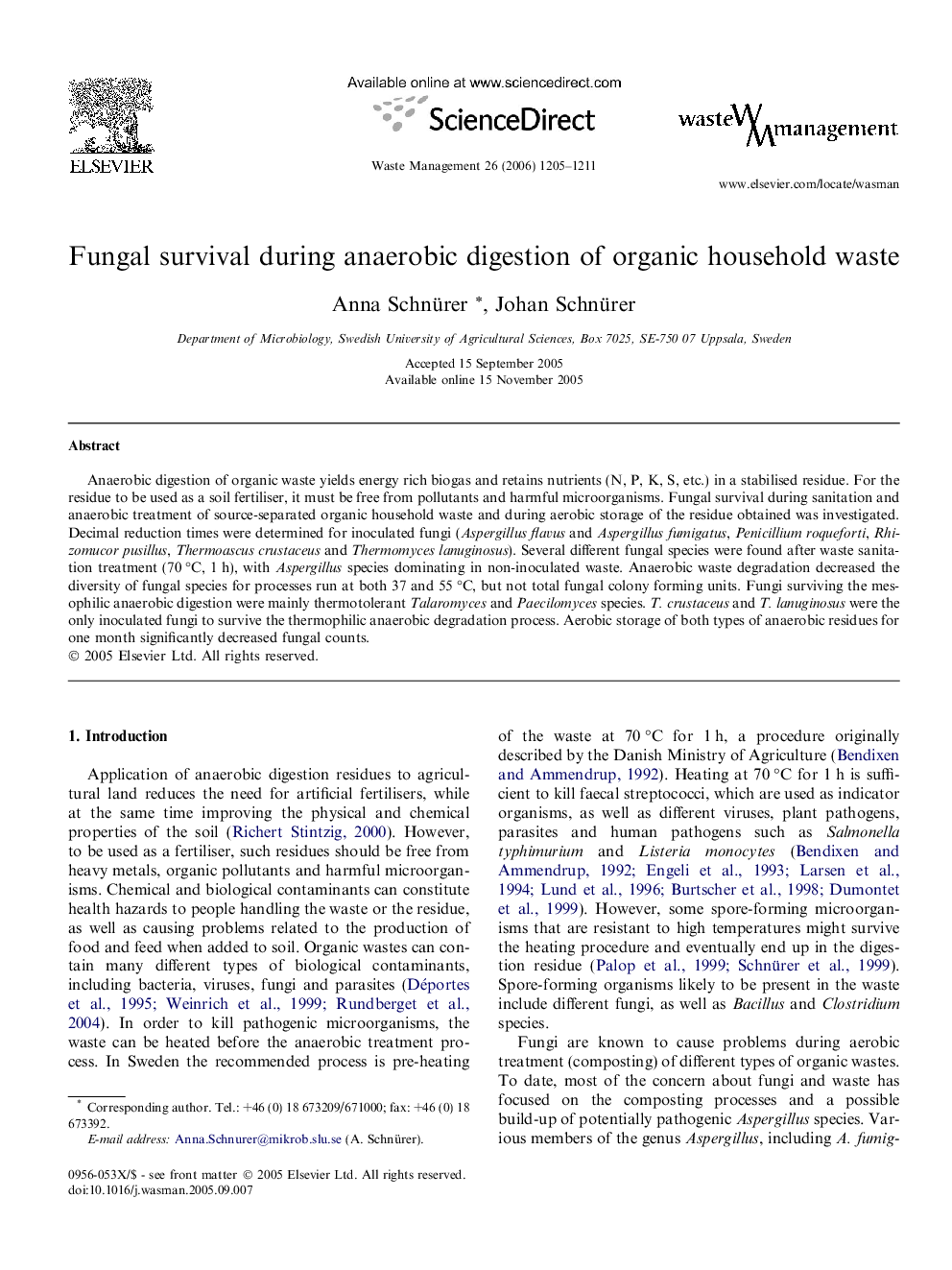| کد مقاله | کد نشریه | سال انتشار | مقاله انگلیسی | نسخه تمام متن |
|---|---|---|---|---|
| 4474202 | 1315138 | 2006 | 7 صفحه PDF | دانلود رایگان |

Anaerobic digestion of organic waste yields energy rich biogas and retains nutrients (N, P, K, S, etc.) in a stabilised residue. For the residue to be used as a soil fertiliser, it must be free from pollutants and harmful microorganisms. Fungal survival during sanitation and anaerobic treatment of source-separated organic household waste and during aerobic storage of the residue obtained was investigated. Decimal reduction times were determined for inoculated fungi (Aspergillus flavus and Aspergillus fumigatus, Penicillium roqueforti, Rhizomucor pusillus, Thermoascus crustaceus and Thermomyces lanuginosus). Several different fungal species were found after waste sanitation treatment (70 °C, 1 h), with Aspergillus species dominating in non-inoculated waste. Anaerobic waste degradation decreased the diversity of fungal species for processes run at both 37 and 55 °C, but not total fungal colony forming units. Fungi surviving the mesophilic anaerobic digestion were mainly thermotolerant Talaromyces and Paecilomyces species. T. crustaceus and T. lanuginosus were the only inoculated fungi to survive the thermophilic anaerobic degradation process. Aerobic storage of both types of anaerobic residues for one month significantly decreased fungal counts.
Journal: Waste Management - Volume 26, Issue 11, 2006, Pages 1205–1211